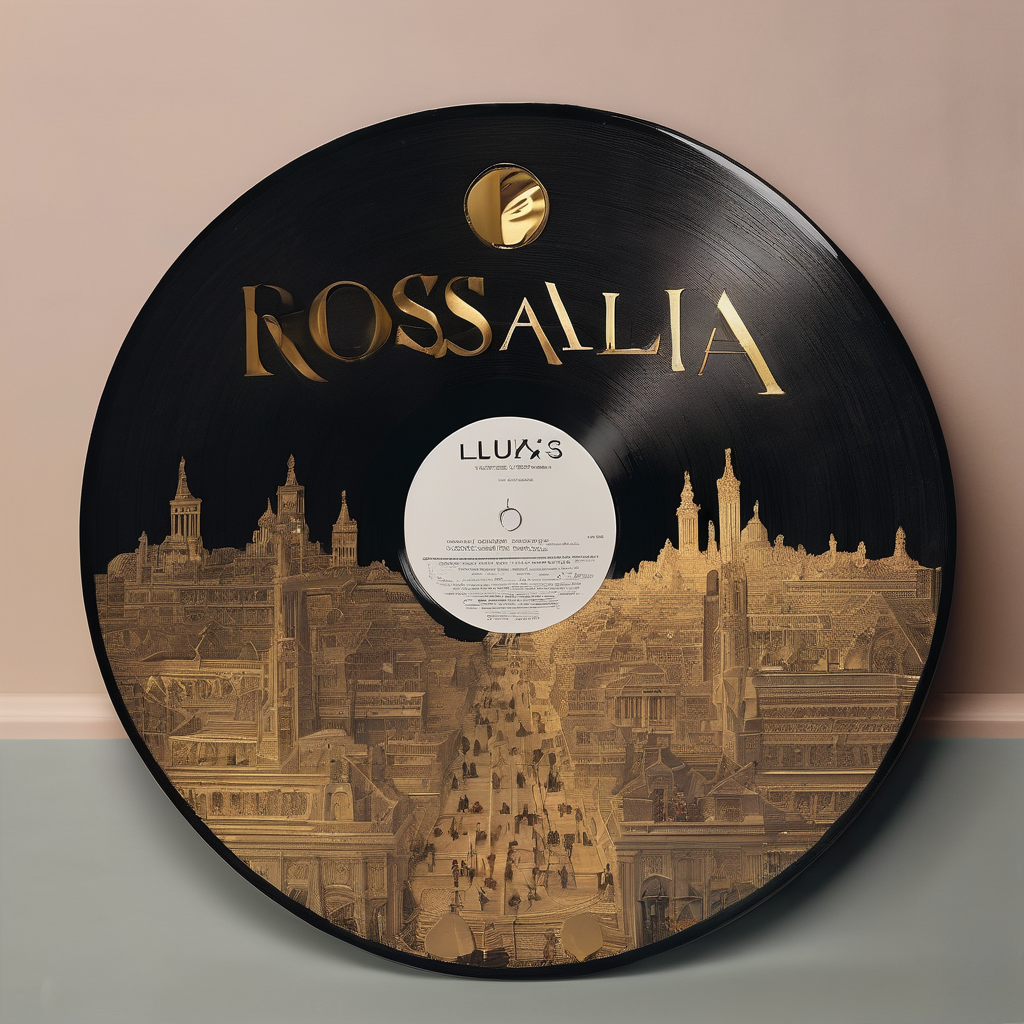Rosalía’s latest album, “Lux,” presents a captivating exploration of spirituality and artistry that diverges from her previous work. The album cover features the Spanish (Catalan) artist wrapped in a nun’s habit, cradling herself beneath the white fabric. This imagery evokes both a powerful garment and a daily practice, reflecting the religious themes interwoven throughout this ambitious four-part, 18-song collection.
Departing from the sharp electronic sounds of her Grammy-winning album “Motomami,” “Lux” envelops listeners in an orchestral ambiance where Rosalía’s voice takes center stage. The absence of mainstream “hits” places the emphasis on her vocal delivery and the rich sonic tapestry, inviting deeper engagement with each track. It’s a spiritual journey sculpted from material and references she has carefully compiled over the past three years, fostering a challenging yet enriching listening experience.
Rosalía’s background as a conservatory-trained musician, having studied vocal flamenco performance at the prestigious Catalonia College of Music, underpins the artistry found in “Lux.” From being the first solo female artist to win album of the year at the Latin Grammys since Shakira in 2006 to pioneering innovative sounds in “El Mal Querer” and “Motomami,” she continually redefines expectation in mainstream music.
The album’s opening track “Berghain” features a collaboration with Björk and Yves Tumor, setting the stage for the unexpected turns that follow. Throughout “Lux,” Rosalía challenges her audience with a shift in musical direction coupled with a cohesive conceptual narrative. Citing influences from saints and unconventional female figures like Sun Bu’er, she weaves a narrative that illuminates the complexities of societal expectations and personal autonomy. Her song “Novia Robot” showcases a poignant message, performed in Mandarin, underlining the authenticity of human experience against societal norms.
Key themes of sainthood and self-awareness permeate the album, crystallizing in tracks like “Porcelena,” where Rosalía grapples with duality—feeling both insignificant and vital. This intimate exploration is echoed in “La Perla,” which critiques an emotionally destructive partner, and “Focu Ranni,” a heartfelt reflection on her engagement with reggaetón star Rauw Alejandro.
Musically, “Lux” is rich with intricate instrumentation that complements Rosalía’s vocal prowess, with her voice resonating amid lush soundscapes. The album concludes with “Magnolis,” which encapsulates themes of mortality and existence, suggesting that the void experienced in life is a conduit to divine understanding.
In an era saturated with noise, Rosalía’s conviction and artistic sincerity stand out, inviting listeners to embrace profound introspection. The bold actions of creators like her remind us that true artistic expression has the power to connect deeply with the human experience, echoing a hope that resonates far beyond the music itself.
